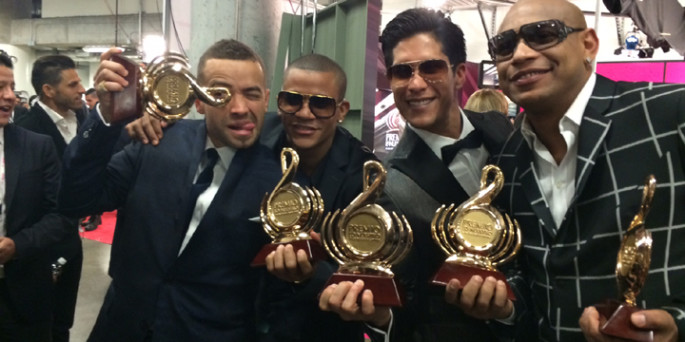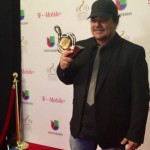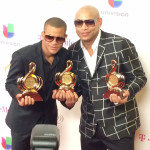
‘It’s time to change’
MIAMI — That’s what Olga Tañón said at the Concert for Peace in Havana in 2009. Quite a few in the mass media speculated and fired critical missiles at those “crazies” who proclaimed a message of peace and love throughout the world.
Today (Feb. 19), a few hours after the 27th edition of the Lo Nuestro Awards, the most veteran of award shows on Spanish-language television in the U.S., the roulette wheel spins around a single name: Cuba.
Repeated signs of thanks and pride show that change is possible, that Cuba is an indisputable part of the contemporary musical world. The Lo Nuestro Awards showed new cards.
Allegorical symbols from the land of flavor and sandunga injected new energy into a contest where the music and artists from the island had traditionally had no presence.
In a high-carat production, the rehearsals hinted at a peculiar spectacle that would fill Cubans with pride on either side of the Straits.
The Trinidad Cathedral, the buildings in the Old Plaza, the vintage cars and the dancing mulattas were the first sights in the show. Musical rhythms and hip movements led into the voices of Alexander Delgado, leader of Gente de Zona, and Randy Malcolm.
“Yo Quiero,” a song they performed with Mr. 305, Pitbull, opened the program, plunging the audience into a Havana filled with flavor and sandunga.
An overflowing and contagious adrenaline propelled the audience at the American Airline Arena in Miami to their feet. As if the heat of the Cubans on the stage were not enough, several Latin artists followed their lead in their performances.
Puerto Rican Marc Anthony appropriated the lyrics of the natural guajiro Polo Montañez and delivered “Flor Pálida,” a theme recreated by the visual art of producer Alejandro Pérez, who, while not mentioned in this gala, deserved the Lo Nuestro award for “Bailando,” the year’s best video.
The Guatemalan Ricardo Arjona was another artist who remained in the Cuban environment. Arjona, who will soon surprise us with other musical links to Cuba, opened with “Puente” (Bridge), a single whose lyrics describe the gap that the governments of Cuba and the United States are trying to close.
The humility and brotherhood of Spaniard Enrique Iglesias, winner of six awards this year, among them Pop Song of the Year, brought the show to a golden end.
Iglesias summoned to the stage Descemer Bueno and the Gente de Zona duo, who had not been mentioned perhaps due to technical flaws. Grateful, the Cubans shouted the name of their homeland and heard it resound in the voices of thousands of spectators.
As if that weren’t enough, Victor Manuel sounded his drums in a very popular version written by Osmany Espinosa and sung by Laritza Bacallao.
Upon reviewing this night of awards, I cannot but recall this “change” foretold in 2009 at the Concert for Peace, in Havana. May this even be only the tip of the iceberg when it comes to promoting the talent, creativity, ingenuity and musical culture of Cuba.
[For a list of the awards and the winners, click here.]
Progreso Semanal/ Weekly authorizes the total or partial reproduction of the articles by our journalists, so long as source and author are identified.









